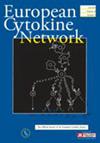Nicotine exerts neuroprotective effects by attenuating local inflammatory cytokine production following crush injury to rat sciatic nerves
IF 2.2
4区 医学
Q4 BIOCHEMISTRY & MOLECULAR BIOLOGY
引用次数: 7
Abstract
Recent studies have demonstrated that nicotine exhibited anti-inflammatory and neuroprotective properties by interacting with the alpha 7 nicotinic acetylcholine receptor (α7nAChR). However, the role of nicotine in regeneration during peripheral nerve injury has not been elucidated. The aim of this study was to investigate whether nicotine down-regulated production of proinflammatory cytokines and promoted peripheral nerve regeneration in rats. Rats challenged with sciatic nerve crush injury were treated with nicotine (1.5 mg/kg), three times per day. The expression of the proinflammatory cytokines tumor necrosis factor alpha (TNF-α) and interleukin (IL-1β), pinch test results, growth-associated protein 43 (GAP-43) expression, morphometric analyses, and the sciatic functional indexes were determined in sciatic nerves. Treatment with nicotine decreased local levels of TNF-α and IL-1β, and increased the expression of GAP-43. Nicotine also improved nerve regeneration and functional recovery. The overall protective effects of nicotine were reversed by concomitant treatment with α7nACHR antagonist methyllycaconitine, indicating that nicotine exerted its specific anti-inflammatory and neuroprotective effects through the α7nAChR. These findings show that nicotine administration can provide a potential therapeutic pathway for the treatment of peripheral nerve injury, by a direct protective effect through the α7nAChR-mediated cholinergic anti-inflammatory pathway.尼古丁通过降低坐骨神经挤压损伤后局部炎症细胞因子的产生而发挥神经保护作用
最近的研究表明,尼古丁通过与α7烟碱乙酰胆碱受体(α7nAChR)相互作用而具有抗炎和神经保护作用。然而,尼古丁在周围神经损伤再生中的作用尚未阐明。本研究旨在探讨尼古丁是否下调大鼠促炎细胞因子的产生并促进周围神经再生。用尼古丁(1.5 mg/kg)治疗坐骨神经挤压损伤大鼠,每天3次。测定坐骨神经促炎因子肿瘤坏死因子α (TNF-α)和白细胞介素(IL-1β)的表达、捏片试验结果、生长相关蛋白43 (GAP-43)的表达、形态计量学分析和坐骨功能指标。尼古丁治疗降低了局部TNF-α和IL-1β水平,增加了GAP-43的表达。尼古丁还能促进神经再生和功能恢复。与α7nACHR拮抗剂甲基莱卡乌碱联合治疗后,尼古丁的整体保护作用被逆转,表明尼古丁通过α7nACHR发挥其特异性抗炎和神经保护作用。上述结果表明,尼古丁通过α 7nachr介导的胆碱能抗炎通路对周围神经损伤具有直接的保护作用,为周围神经损伤的治疗提供了一条潜在的治疗途径。
本文章由计算机程序翻译,如有差异,请以英文原文为准。
求助全文
约1分钟内获得全文
求助全文
来源期刊

European cytokine network
生物-免疫学
CiteScore
5.70
自引率
0.00%
发文量
5
审稿时长
6 months
期刊介绍:
The journal that brings together all areas of work involving cytokines.
European Cytokine Network is an electronic journal that publishes original articles and abstracts every quarter to provide an essential bridge between researchers and clinicians with an interest in this cutting-edge field.
The journal has become a must-read for specialists in the field thanks to its swift publication and international circulation.
The journal is referenced in several databases, including Medline, which is testament to its scientific quality.
 求助内容:
求助内容: 应助结果提醒方式:
应助结果提醒方式:


